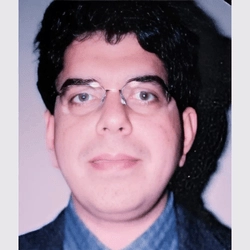
Alexander J Shadikhan
California Coast University, United States of AmericaPresentation Title:
Hypnosis: A brief review of current research
Abstract
Hypnosis became of interest to the scientific community with a renewed interest in the mind-body connection and an attempt to find a find a way to curb rising drug costs [1]. Despite its many criticisms including stigma attached to its stage history [2] and lack of a structurally sound model [3] it has become a formidable tool for treating various psychological issues. To understand hypnosis or hypnotherapy we must explore how it functions and the changes in brain function that occur in the patient during the process. Furthermore, an understanding of inherent characteristics of the individual are present for these changes to occur. What is known is that there is greater focus on the internal environment as opposed to the external during induction [4]. The role of increased theta wave activity, oxytocin, Gaba, and increased activity in the dorsal anterior cingulate cortex [5] cannot be overlooked due to its ability to produce a relaxed and a calm state. Hypnosis is perhaps a more complex therapy than we realize, often incorporating steps used in other therapeutic processes and that can often be used independently. The problem then arises explaining and relating these factors to each-other within a single model. For the most part, we have a clear understanding that it gives desired results when used to treat various psychological issues, even if we are not completely sure of all of the mechanisms and pathways involved. Keywords: Hypnosis; Hypnotherapy. Cite this article as: Alexander J Shadikhan. 2023. Hypnosis: A brief review of current
Biography
Alexander J Shadikhan became interested in how the brain functions, laying the cornerstone for pursuing a B.A. (Honors) in Psychology at Nipissing University in North Bay, Ontario, Canada, and a subsequent M.S. degree in Psychology at California Coast University in Santa Ana, California, USA. He is currently working in the capacity of Psychiatric Counselor and has been employed at Northwestern Medicine CDH in Behavioral Health for the past four years. He has also served on the Editorial Board of Raft publication as Editor-in-Chief for International Journal of Psychiatry and Mental Health (2020 - Present). His experience in the mental health has spanned more than 25 years. He has published several articles including Hypnosis: A Brief review of Current Research (2023), Unveiling the Unconscious: A Brief Overview (2024), Understanding Post-Traumatic Stress Disorder and the Effectiveness of Therapeutic Mechanisms (2025).

